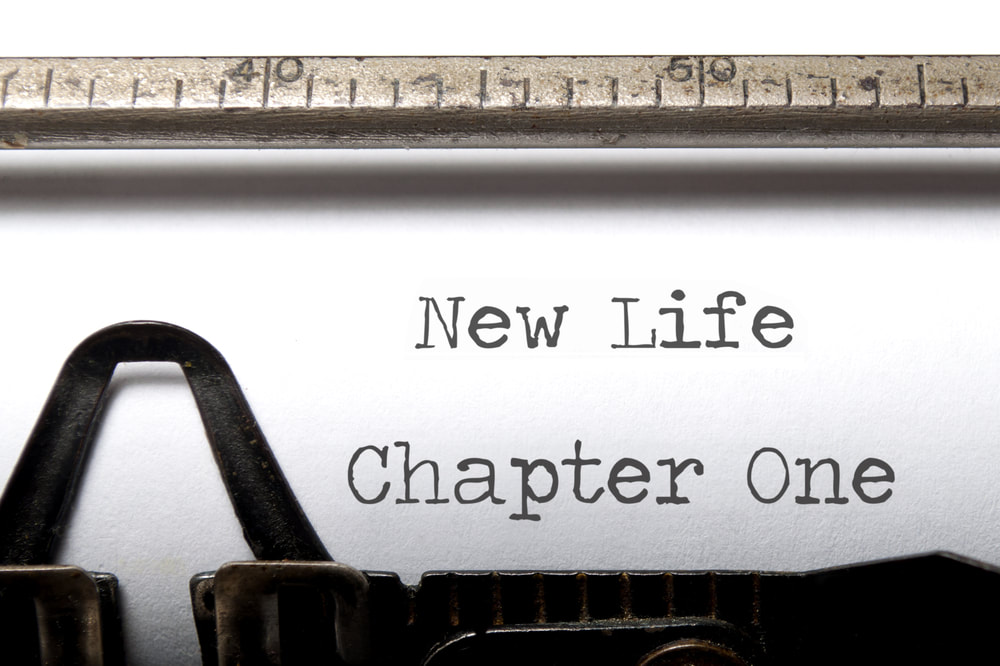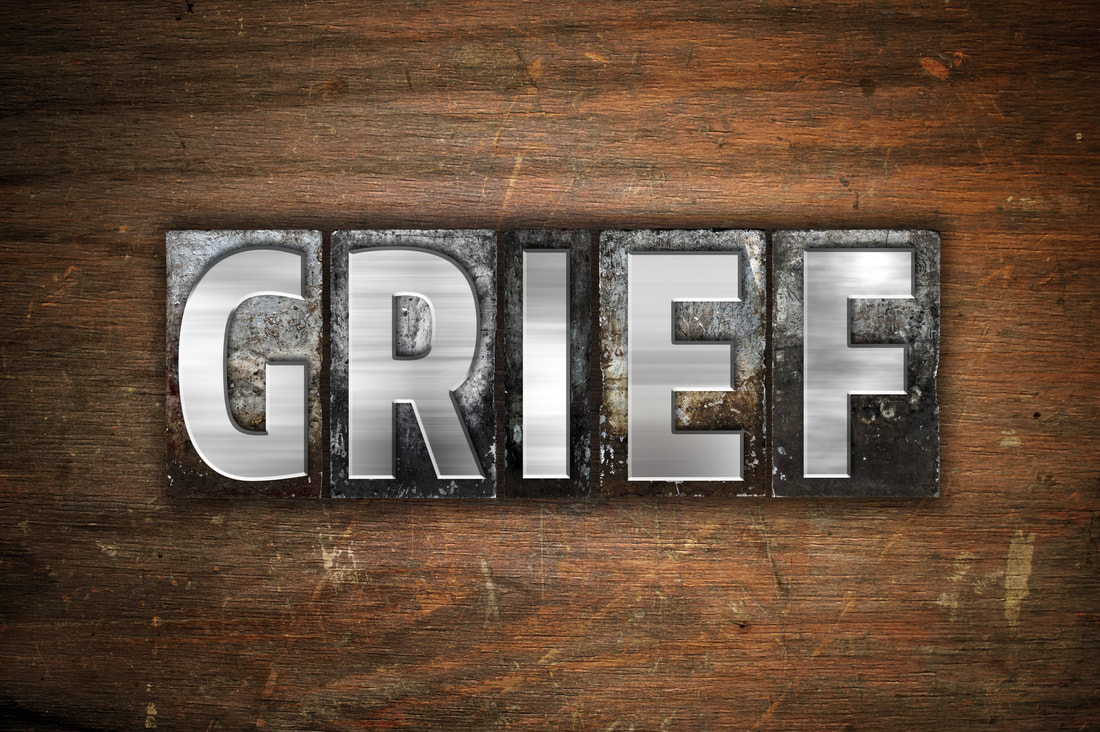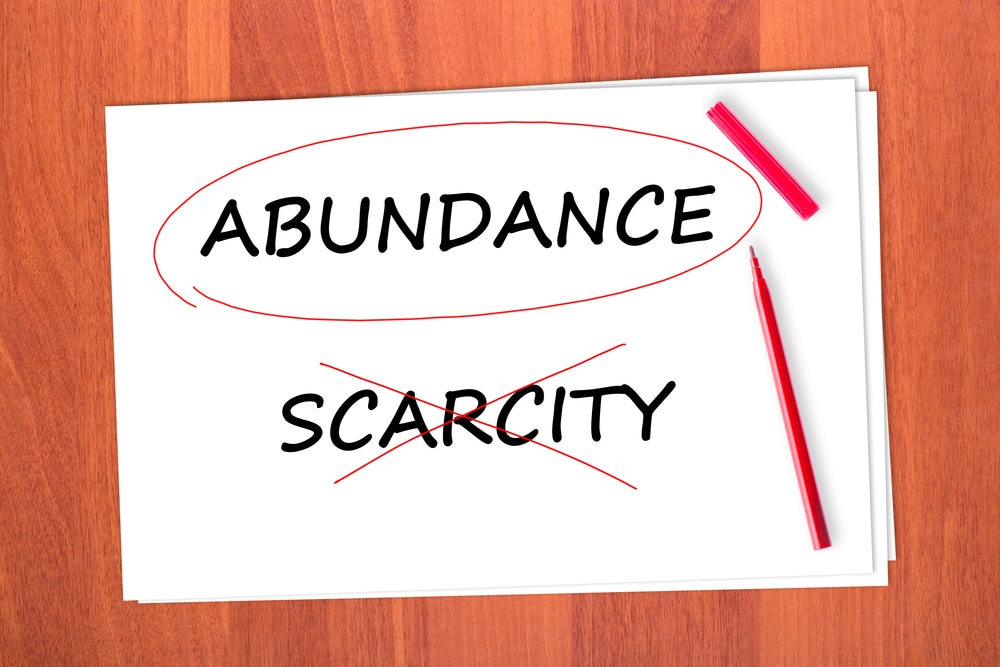Over the years I have encountered numerous myths and misconceptions about divorce-related grief, the most common of which is the notion that it is linear, logical and finite. We expect grief to peak immediately after separation, then slowly subside until, perhaps a few months later, we are mostly pain-free. If only that were true! Separation and divorce shakes our snow globe, causing its vulnerable particles to erratically float around with no end in sight. So it's no wonder that any human being would want those particles to settle quickly, in an orderly, predictable way. Unmet grief expectations are frequently construed as failure. We don't feel the way we think we should, so we conclude that we are not "doing it right." This adds unnecessary suffering to pain. We can create a more accepting relationship with ourselves and our grief when we understand its true nature. To that end, I have created the following list of often-experienced-but-rarely-discussed, long-term emotional truths about divorce:
If you’re still reading this, I imagine you may wondering what can be done to help mitigate the pain of these truths. One of the most important things we can do, post-divorce, is clarify our values (e.g., family, commitment to service, personal accountability, kindness toward others, etc.) and commit to living those values. This sounds simple. But it is not always easy. Furthermore, habits of intentional living take time--sometimes years--to develop. Now is the time to be kind and patient with yourself. Keep in mind that few roads are perfectly smooth or straight. If you find yourself straying from your values, recommit to them. Repeat this process as many times as needed. Finally, keep in mind that the presence of difficult emotion does not signify the absence of coping. All emotions, even the unpleasant ones, signify our humanity. Feelings are a normal, natural part of any living finish. Dr. Jill Gross is a licensed psychologist, therapist, and counselor. She offers grief therapy, divorce consultation, co-parenting support, and other counseling services in the Phinney Greenwood area of Seattle, WA. If you would like help coping with the long-term emotional impact of divorce, follow the link below to schedule a free consultation.
2 Comments
On the cusp of a breakup, separation, or divorce, it is common for people to focus mostly on what they will lose: a spouse or partner, time with their children, relationships with the ex's family and friends. The list goes on and on. As a separation and divorce counselor, I like to help clients honor the pain of loss while reminding them of what will also be gained: relief from the tension of a relationship that wasn't working, the confidence of knowing they can thrive on their own, new experiences with people they've yet to meet. This list, too, can go on and on. When the basic business of just getting by (e.g., getting out of bed, taking a shower, going to work, etc.) seems herculean, it's hard to trust that the future will be bright. But, with a little mindfulness, some time, and some effort, it is possible to thrive after a breakup, separation, or divorce. If you are in the pain trenches of acute loss, here are a few tips to help guide you toward a brighter future:
Even if you don’t believe it right now (which is okay), you are heading toward wherever you are meant to go. What if this ending is an invitation to feel as whole as you already are? Dr. Jill Gross is a licensed psychologist, therapist, and counselor. She offers grief therapy, divorce consultation, co-parenting support, and other counseling services in the Phinney Greenwood area of Seattle, WA. If you would like support in finding the forward path, schedule a free consultation to see how divorce counseling can help. Counselors and therapists once conceptualized grief as a linear process. It was meant to unfold in predictable stages: denial, followed by anger, bargaining, depression and, finally, acceptance. We used to think grief had a beginning, a middle, and an end. Grief experts think differently now. The grief model has considerably expanded over the last decade. While the above described experiences depict what many grievers encounter after a loss, we now know that the "areas" of grief are neither linear nor universal. What's more, grief has proven itself to be cyclical, free-flowing, and without an endpoint. Though our understanding of the grieving process has evolved, many of the grievers I see in therapy judge themselves harshly when their grief does not look or feel the way they think it should. They should feel more of this or less of that. They admonish themselves for moving forward too quickly; flagellate themselves for lagging behind. This happens even when I remind them that grief is both unpredictable and specific to the griever. Grievers will cling to the idea that, somehow, they are doing grief wrong--even though doing so makes them feel worse than they already do. It's normal, when faced with uncertainty, to yearn for order and predictability--both are associated with our sense of emotional safety. Yet telling ourselves we should feel something other than what we do feel is akin to tossing a boulder into the middle of a stream. It interrupts what would otherwise naturally flow toward its intended destination. Take Sylvia* for example. Silvia was 35 when she sought grief counseling to deal with the death of her beloved father. Sylvia and her father were so close everyone, including Sylvia, expected she would fall apart after his death. But that did not happen. In fact, Sylvia sought therapy because she was concerned about what she described as "a disturbing lack of emotion." We explored this together. When I asked Sylvia to tell me more about her father, her face lit up. She spoke at length about a robust, generous, sharp-witted family man. He was a present and engaged father to Sylvia and a wonderful grandfather to Sylvia’s two children--until he was diagnosed with early onset Alzheimer’s Disease. The diagnosis was followed by a rapid decline in physical and mental health, which sent the whole family into turmoil. Sylvia’s demeanor shifted as she described what it was like to watch the disease whittle away at her father. Just before his death, Sylvia's once-independent role model could no longer feed or bathe himself. He was unable to recognize a single member of the family he loved so dearly. Sylvia's dad was alive. But he wasn't really living. As I listened to Sylvia's story it occurred to me that the issue at hand was not a lack of emotion. It was the belief that her grief was supposed to occur in order. The sadness she expected would come after her father died actually took place long before his physical death. When death marks the endpoint to prolonged suffering, it is common for family members to feel some degree of relief. Rarely can they admit this without feeling guilty. So they don't talk about it all. This was the case for Sylvia. Therapy gave Sylvia the one thing she needed most: a safe place to speak her truth, even though it did not sound the way she expected it would. With time and therapy, Sylvia was able to make peace with her grief. It is when we are vulnerable that we are most worthy of patience and grace yet, for many, this is the time we are least willing to extend it. If you are telling yourself you should be anywhere other than where you are in this moment, I invite you to remember that grief is a natural and organic process that needs only to be witnessed and felt. It's okay to let go of grief-related expectations--they will only get in your way. Instead, trust your grief and yourself. Both are trustworthy. *All identifying information has been changed to protect patient confidentiality. Dr. Jill Gross is a licensed psychologist, therapist, and counselor. She offers grief therapy, divorce consultation, co-parenting support, and other counseling services in the Phinney Greenwood area of Seattle, WA. Having trouble trusting your grief? Schedule a free consultation to see how grief counseling can help you find the forward path. Early grief is a basket of contradictions. The pain tells us to “do” something but everything hurts and there is nothing we want to do. We want the pain to stop but letting it go feels like a betrayal: of the deceased, of us, of our grief. We long for supportive company but accepting well-intended offers from people who have no idea what we are going through makes us feel even more alone. In moments like these, our pain seems unsoothable: nothing can be done or said to make it dissipate. It’s okay to long for the life you had with your loved one. And, it is equally important to keep going forward with life as it is now. There’s a good chance you feel as sad as you do because you deeply loved someone and because you were deeply loved in return. The truest form of love is the unselfish wish for another to be happy, even when we cannot be with them in physical form. By continuing to care for yourself, you are not only honoring the person you lost, you are stepping toward your own aliveness. Which, conveniently, happens to be the best forward path after loss. We do this slowly, one moment, one day, one week at a time. Here are a few tips to help reconnect you with your own aliveness:
Speaking of time, now may be a good one to remind you that, everything, even your pain, is designed to be temporary. You will hurt for a while but you won't feel this way forever. With each day that passes, each forward step you take, you are succeeding are rebuilding your life. And that is more than enough. Dr. Jill Gross is a licensed psychologist, therapist, and counselor. She offers grief therapy, divorce consultation, co-parenting support, and other counseling services in the Phinney Greenwood area of Seattle, WA. Having trouble rebuilding after the death of a parent, spouse, child, family member or friend? Schedule a free consultation to see how grief counseling can help you move forward in a healthy way. The loss of a spouse or soul mate can generate so many questions. In the acute fog of grief, each moment is its own unique world--changing all the time. We wonder about the basics of survival. How will we get through each day? Will we ever feel 'normal' again? As time passes, the content of our questions shifts toward a greater curiosity about what the future holds. We ask who will hold us again or how we will know the time is right to accept new love into our hearts. What follows is a letter from one reader who, five years after losing her beloved soul mate, is grappling with some of these questions and the feelings that go with them. I hope this letter can be of use to any of you who may be wrestling with how to move forward after losing a spouse or partner. Feel free to share your sentiments and questions in the comments section below. I look forward to hearing from you! Dear Dr. Jill, My husband of twenty-five, amazing, fun-filled years died suddenly of an aneurism about five years ago. I’m not exaggerating when I say John was everything to me. He was my lover, my best friend, my traveling companion. We had two beautiful children. We were inseparable. When John died, my life came to a screeching halt. I can barely remember the first year or two after my soul mate's death. There were days when I couldn’t get out of bed or see anyone. I had trouble eating, showering—even parenting my then teenaged children. There were times when the pain was so bad I thought it would kill me. And there were moments when I actually wanted it to, just so John and I could be together. With the support of my family, friends, and church, I slowly crawled out of the dark hole I was in. I started eating, showering, attending church services, and reengaging with my friends and family. Life is still hard without John but I’m managing as well as can be expected. About six months ago, a fellow church member (I’ll call him Chuck) started asking me to do things. A dinner here. A movie there. I’ve known Chuck since before John died, so I assumed he was just being friendly. However, a few weeks ago, Chuck told me he was interested in something more than friendship. At first, I panicked and told him I was not ready to date. I made a few awkward jokes and then quickly changed the subject. I figured all would return to normal and that would be that. Since that night, I cannot stop thinking about Chuck. Each time I do, I instantly think about John and then I feel guilty. I try to push the thoughts about Chuck out of my head. I haven’t been able to do it. It’s been five years since his death and, yet, I feel like I'm being disloyal to John. I’m worried that my children and my church community will judge me if I start dating again. And what if things don’t work out with Chuck? What then? I’ve relied so heavily upon my church since John died, I’m afraid that a relationship with Chuck might jeopardize my place in the community I've come to rely on. I’m so confused. If I have all of these questions, does that mean that I’m not ready to date? Or does it mean that Chuck is not the right person to date? I was with John for so long and things were so easy. I am not sure I know what is normal and what is a sign that I’m making a bad choice. Any advice you have is appreciated. Signed, When To Say When Dear When, If my arms were long enough, I would reach out and hug you right now! The depth of your love and commitment to John came through in your words. I can only imagine how difficult it was for you to learn how to move forward without him. What also came through in your letter was the transformative power of grief. Though it wasn’t easy, after the initial “grief fog” lifted, you leaned into your support system and created a new normal for yourself. This takes courage and tenacity. Thus, it’s no surprise that any man would feel drawn to your strength! The questions you are asking suggest the presence of both fear and its most reliable sidekick, self-doubt. These feelings make sense. The last time your heart was open, it was devastated by loss. Of course you would feel unnerved as the door to your heart slowly creaks open again. Fear, self-doubt, and romantic attraction do not have to spell disaster or disloyalty. They can instead signify the awakening of parts of yourself that have been dormant since John’s death. Aliveness, in whatever form it presents itself, is always a good thing! It is not necessary (nor is it possible) to know how things will turn out with Chuck. In fact, the outcome may matter less than you think. What's more important is the conscious choice to turn toward your own vitality. When granted permission to do so, the heart will naturally make space for more love. John will always be a unique and integral chapter of your love story. Neither his death nor your choice to seek joy with a new partner will change or undo that. In closing, I would like answer your questions with two of my own: What if there were no mistakes? What your grief gave you everything you need to handle this situation? Proceeding as if both of these things are true will go a long way toward figuring out the next best step. Good luck! Yours In Health, Dr. Jill Dr. Jill Gross is a licensed psychologist and grief counselor in the Phinney - Greenwood area of North Seattle. If you are struggling with the death of a spouse, help is just a click away. Schedule a free consultation to see how grief therapy can help you rediscover your own aliveness! Money. It's a loaded topic. So loaded that it happens to be one of the three most common things couples fight about. Sex and children are the other two. Just in case you were wondering.
Last week, a reader asked for help with compulsive spending behavior. Since this issue is actually quite common, I am posting both the letter and the response here on the blog. If you've got thoughts on this subject, feel free to share them in the comments section below. Dear Dr. Jill, I have a little spending problem. Actually, if I’m really being honest, the problem is more than little. I seem to have a penchant for maxing out credit cards. I maxed out three credit cards in ten years. Whenever I saw something I wanted, I was pretty good at convincing myself I *had* to have it, even though, deep down, I knew I really couldn’t afford it. After making a purchase, I would feel good for a while. But then the bills I couldn't pay would show up at the end of the month and I would end up feeling guilty. I was hopeful for change when, three years ago, I met and got engaged to a really wonderful man. When my fiancé and I met, he had a good job. He was really good with money (he had no debt because he preferred to pay cash for everything). In an effort to start our financial lives off with a clean slate, my fiancé agreed to pay off my debt. I thought my problems were solved! We shredded all of my credit cards too. I felt scared about the idea of not having any credit cards but I also felt free. My fiancé put us both on a budget that I promised to stay within. This seemed to work for a while. A few months ago, I received a credit card offer in the mail. I knew it was a bad idea but I went for it anyway. Here’s the worst part: I didn’t tell my fiancé. I can’t say for certain why I didn’t tell him. I guess I thought I could handle it on my own. I was wrong. I told myself I would use the card only for emergencies. But, a few weeks into it, I started making purchases. A pair of winter boots here, a new sweater there and so on. I told myself I would take care of it by the end of the month but, when the bill came, the balance was more than we had in our checking account! Afraid that my fiancé would find out, I shredded the statement and told myself I would take care of it next month. That was almost two months ago and I still haven’t done anything. The wedding date is now three months away and we will soon be required to make the final deposits for the caterer, venue, etc. If we pay off my new credit card, we won’t have the money to pay the vendors for our wedding. I’m scared to tell my fiancé what happened. I’m afraid he will be mad or, worse yet, end our relationship. He is really the best thing that has ever happened to me. I don’t want to screw this up. Can you help me figure out what to do? Signed, Secret Spender Dear Secret Spender, I am relieved that your secret has finally been given a voice! Engagements and weddings can bring up a lot of complicated feelings. I’ve yet to meet anyone (well--anyone who is being totally honest!) who hasn’t had at least some fear or self-doubt prior to getting married. “How will marriage affect my independence?” and “What if the relationship doesn’t work out?” are two of the most common questions asked by the betrothed. Perhaps the recent bout of spending is your way of grappling with these questions, without addressing them directly. Compulsive behaviors, such as drinking or spending money, are often used to help mitigate painful or difficult emotions, like fear or self-doubt. The only trouble is, by engaging in compulsive behaviors, we end up creating more of the feelings we were hoping to assuage in the first place! In other words, you are now quaking in the very boots that were originally meant to keep some of your fears at bay. When we choose to make something a secret, we give it power. It’s possible the latest transgression may be inviting you to reclaim this power, first by telling your fiancé exactly what happened. It is better your partner hear it from you than a disgruntled wedding vendor or agent seeking to resolve a debt he is completely unaware of. Regardless of what your partner chooses to do with the new information, you will have taken a bold, brave step toward reestablishing trust in the relationship. Assuming you both choose to proceed with the relationship, you and your partner, as a united team, can make informed decisions about how to meet your impending financial obligations. Another way to empower yourself is by seeking therapy with a qualified addiction specialist. A professional of this nature will have the skill set needed to help you learn constructive new ways of managing discomfort while protecting yourself and the relationships you treasure. Organizations like Debtors Anonymous are also great places to get support from like-minded individuals. Compulsive spending is treatable but it can also be tenacious. So I urge you to consider getting the support you deserve and committing to it for the long haul. You’ve made an important first step by sharing your secret with this community. I encourage you to keep the conversation going, both with your partner and with a good therapist. Thank you for writing in! Yours In Health, Dr. Jill Dr. Jill Gross is a licensed psychologist, therapist, and counselor. She offers grief therapy, divorce support, and other counseling services in the Phinney Greenwood area of Seattle, WA.
People seek counseling or therapy to change what no longer works: careers, lifestyles, friendships, marriages. They’ve labored for months, years, sometimes even decades to make their jobs more appealing, their spouses more affectionate, their families more considerate. Exhausted from the fight, clients come to therapy hoping their therapist or counselor will join the effort. And we do. Just not always in ways our clients expect.
What brings people in the door is frequently not what keeps them there. What is initially described as a problem is usually the beginning of a solution. Jason*, a twenty-three-year-old, second-year medical student, was referred for psychotherapy by a psychiatrist from whom he originally sought antidepressant medication. He didn’t exactly sit on my sofa. He slammed himself against the back cushion and slid, pancake-style, until he was practically laying down and sitting up at the same time. When asked what brought him to therapy, he could barely lift his head to answer. “Depression” was the most he could muster. I probed further. From the time he was old enough to walk, talk, and cut his own steak, Jason was told he was destined to be a physician. For the entirety of his youth, his parents, both surgeons, conveyed to Jason that he had two post-college options: medical school or medical school. Jason was a gifted student to whom science and math came easily. So, after graduating from a prestigious college with a Bachelor’s degree in biology, Jason applied to medical school and was accepted. Off he went. There was only one tiny problem with this plan: Jason hated medicine. A classically-trained pianist, his true love was music. He wanted to play professionally. Because Jason knew his parents would never approve of this choice, he buried his love of music and forged ahead with the mandate to become a doctor. Though Jason’s presenting concern was depression, with time, it became clear that depression was merely a topical symptom: the real issue was Jason’s relationship with approval. He needed approval so desperately he was willing to pay for it with his life--literally. As he whiled the hours becoming more of the person his parents wanted him to be, he was slowly becoming less and less himself. By the time I saw him, he was merely a shell, his own narrative virtually indistinguishable from that of his parents. It was a long and difficult road but Jason eventually found his voice. As he did, the depression lifted. He mustered the courage to put his medical studies on hold and pursue music. His parents weren’t thrilled but, to his surprise, they hung in there. What’s more, Jason decided, on his own, that he would move in with roommates to lower his living expenses and support himself by teaching piano lessons. It wasn’t a king’s ransom but it was a living. At twenty-three, Jason was doing the unthinkable: he was becoming an adult. Jason clung to a medical career to protect both himself and his parents from the dilemma of having to choose their real-live son over their idealized version of him. The most difficult part of Jason’s journey was not abandoning a career he never wanted to begin with, but trusting that he was strong enough to withstand the discomfort of telling an authentic but unpopular truth. In so doing, he untethered himself from the core belief that his well being was contingent upon the approval of those he cared about. With the need for external validation no longer powering the engine, Jason was not only surviving; he was actually thriving! Jason’s story is not unique. For many of us, fear manifests as immutable obstacles we tell ourselves we cannot live with or without. We cannot leave the job that is giving us bleeding ulcers because we need the money. We cannot ask for what we want because our spouses will leave us. We couldn't possibly sell the house that is bankrupting us. Over and over, we plead with life to change in one breath while weaving stories that are designed to keep it the same in the other. It is not the obstacles themselves that keep us stuck, it is our relationship with the meaning we have imbued those obstacles with. Most obstacles serve a protective function. They shield us from our deepest fears and the dependencies that maintain them. They keep us at a healthy distance from what we are not yet ready to know or experience. We struggle to find a way out of suffering not because we don't have answers but because we haven't yet found the right questions. Had Jason and I focused solely on eradicating his depression, we would not have seen that the real issue was a dependency that was preventing him from knowing his own strength. We cannot succeed at removing the barriers to change unless we first understand and acknowledge their benevolent purpose. If you're on the cusp of making an important change and something appears to be holding you back, remember that you have chosen this obstacle for a reason. Try not to blame yourself here--there is no sense in heaping suffering on top of pain. Reminding yourself that you are the architect of your obstacles can be a way of offering hope that, when you are ready, you will draw up a different blueprint! How have you overcome obstacles in your life? Tell us about it in the comments section below. *Names and identifying information have been altered to protect patient confidentiality. Dr. Jill Gross is a licensed psychologist, therapist, and counselor. She offers grief therapy, divorce support, and other counseling services in the Phinney Greenwood area of Seattle, WA. Are obstacles getting in the way of you having the life you deserve?
Something strange is happening in Seattle. Mother nature appears to have gotten the memo, albeit a month later than the rest of the country, that Spring has arrived.
As I’m writing this, it’s a balmy 74 degrees outside, the gardens are in full bloom. Like earthworms after a good soaking, Seattleites are creeping out in droves from their bookstores and coffee shops to pay tribute to the one thing we all yearn for but cannot control: the sun. Closet mainstays of Gortex and fleece have been temporarily exchanged for tank tops and shorts. The Greenlake lawn is smattered with blankets and picnic baskets. Translucent limbs gently tip toward the golden orb that forsakes them for two-thirds of the year. Fellow park goers pass one another with chins held a little higher, smiles a little wider, freely spouting weather-related pleasantries, exchanging gleeful, knowing glances. It is as if everyone in the city is holding the same winning lottery ticket. While out walking today, I started thinking about why Seattleites go nuts when the weather is nice. A story came to mind about a man who immigrated to the United States from a poor, rural part of India. Upon his first trip to an American grocery store, the man fell to his knees and wept. When his companion asked why the man was crying, he replied, “Such abundance! How is one to appreciate anything?” Indeed, the first sunny day in Seattle nicely exemplifies how scarcity can beget tremendous gratitude. The city's residents savor every moment of sunshine because we know it won’t be long before it disappears. We resent the rain, yet we also know it is the prerequisite for the flowers and fruit trees that dazzle us come springtime. Life is the same way. When we are experiencing a long stretch of suffering or scarcity for which there is no scheduled ending, it is easy to get mired in dark emotions. Every human emotion comes with its own, unique script. Most commonly, when we are suffering, we feel hopeless which, for most of us, sounds like “I am trapped in a hole that is too steep to climb. I will be here forever.” These thoughts are pretty convincing. They seem real, but they are not true. Hopelessness is just like any other emotion, free to come and go, once fully permitted to exist. It is normal to resist suffering out of fear of being carried away by its undertow. In lieu of curious examination of our feelings, we often shame or judge ourselves for having them. Allowing space for dark emotions is not synonymous with succumbing to them. The opposite is true. The more we resist what we are feeling, the more likely our feelings will manifest in ways that don’t serve us (e.g., explosive rage, drinking or drug use, shopping, gambling, etc). In other words, we are fated to act out our feelings until we are ready to learn from them. Life is fraught with suffering. We cannot sidestep it altogether; we must go through it. Here are a few things to keep in mind as you inch your way forward:
Sometimes the lessons we are meant to learn from suffering require additional resources, such as a licensed psychologist, therapist, or counselor. If everything you’ve tried on your own doesn’t seem to be working for you, widen your circle to include a trusted professional. Your mental health is worth the investment! Have you found an effective way out of suffering? Tell us all about it in the comments section below! Dr. Jill Gross is a licensed psychologist, therapist, and counselor. She offers grief therapy, divorce support, and other counseling services in the Phinney Greenwood area of Seattle, WA. Scarcity got you down? Schedule a free consultation to find out how therapy or counseling can help you lead the life of abundance you deserve!
A friend and I were chatting the other day about relationships. After a season of self-prescribed abstinence from the online dating community, this friend (a bright, vibrant forty-something) decided to jump back in the game.
My comrade had recently met an attractive individual with similar interests, goals, and values. She had assumed, were this to happen, that she would be awash with positive emotion. She assumed incorrectly. Instead of bunnies, rainbows, and Oprah moments, my dear friend was wracking her brain for the myriad of ways something could go wrong in the relationship. Perhaps her date would see aspects of her life that are still under construction. Perhaps her affection for this prospective partner would be unreciprocated. Perhaps the whole thing would crash to the earth in a magnificent fireball. In other words, the very thing my friend thought would fulfill her was now the source of considerable discomfort. My friend’s experience is actually quite common. On the verge of accomplishing our goals, it is common for many of us to feel restless or agitated. Why does this happen? The answer is somewhat complex. Longing is an unconscious manifestation of scarcity, the pervasive belief that we are not enough and/or that we do not have enough. Scarcity is fueled by fear and self-doubt. These feelings come with a dialogue that usually begins with “what if” and ends in loss or catastrophe. These stories can feel so real sometimes, we start responding to them as if they are true. They are not. They are merely representations of emotions that are meant to come and go. When we are anxious or fearful, our bodies and brains are compelled to seek—sometimes obsessively—for the people, places, or things we think will deliver us from scarcity. We are seduced by the notion that the perfect partner, job, house, will be our one-way ticket out of painful feelings. The greater our fear, the more urgently we seek to quell it. The wiser mind knows this is a fool’s errand, but fear is an irresistible salesman. Seduced by the idea that deliverance is just one person, place, or thing away, we become consumed by thoughts of the future. In so doing, lose touch with what we are feeling in the present moment. I like to call this “the seeking trance.” When we find what we are looking for, the trance is broken, our love affair with “someday” abruptly ends, we are catapulted into the present moment, and the feelings we were attempting to avoid come rushing into consciousness. Suddenly, the object of our craving becomes someone or something we don’t trust. Online dating can be a sticky wicket for precisely this reason. Each profile is carefully crafted by an individual who has his or her own unique relationship with fear and scarcity. The result is a collective mass of fear-based energy that manifests in unanswered messages by individuals who proclaimed interest, promising first dates who mysteriously disappear, salacious electronic threads that never yield an in-person meeting. (Sidebar: no wonder my friend was feeling overwhelmed by fear—online dating is a veritable roller coaster of hope and disappointment!) The next time you sense urgency in the absence emergency, this is a cue to pause and inquire. Ask yourself what you are afraid of. When we give a voice to fear, we deflate its power. Name your fear(s) out loud. If a child experiencing the same fear approached you for reassurance, how would you respond? Would you judge or criticize this child or would you surround him or her with loving grace? I suspect you would do the latter, so offer this gift to yourself. Repeat this process as often as needed. Remember that fear and desire are opposite sides of the same continuum. To move from one end, we must lovingly attend to the other. When we really listen to our fear, when we respond to self-doubt with loving kindness, we inch closer to desire. Just as fear begets scarcity, desire beget abundance. When we act from a fearful place, our energetic field constricts, practically guaranteeing we will not find what we are seeking. When we act from a place of authentic desire, we make room for the things want to find us and, when they do, we are more likely to value them. Dr. Jill Gross is a licensed psychologist, therapist, and counselor. She offers grief therapy, divorce support, dating consultation and other counseling services in the Phinney Greenwood area of Seattle, WA. Want to have a richer, more satisfying online dating experience? Schedule a free consultation now!
In Part One of this series, we explored why people lie and the impact of dishonesty on relationships. This week, we will endeavor to answer the two most common questions asked of therapists and counselors by individuals and couples whose lives have been shattered by betrayal: Can the relationship be rebuilt and how long will it take?
So little of therapy or counseling is governed by hard-and-fast rules. This can be frustrating for clients desperately seeking clarity after being hoodwinked by someone they loved and trusted. Typically those who have betrayed their partners are eager to bury the hatchet (to assuage their guilt or shame) while the betrayed need time for the pain of its blow to subside. Reparability is contingent upon the following factors:
Trust is regained when actions and words align over time. Partners can say they want to repair a relationship but, if they are unwilling to do what is needed, these words are meaningless. Betrayers must display a solid track record of being where they said they would be, when they said they would be there, doing what they said they would be doing with whom they said they would be doing it. "Deposits" in the trust account must be made repeatedly until the balance is significant enough to offset the recent withdrawal. Some couples view betrayal as an opportunity to form a stronger, more satisfying union. Others see deception as the harbinger of an ending. I once worked with a young woman whose husband had a lengthy affair with a female colleague. Just months earlier, the client discovered her husband had been sending inappropriate texts to other women. After a year of obsessive thoughts, frequent checking of her husband's phone, and barely-contained urges to follow him every time he left the house, the client realized that remaining in the marriage was costing her dignity. This was ultimately too high a price to pay so she left the marriage. As the healing process unfolds, both the deceiver and the deceived must ask, based on what they know to be true about themselves, whether the pain of rebuilding is preferable to the pain of leaving. As this young woman's story suggests, we must know ourselves well enough to be honest about the answer. How long does healing take? For those who choose to rebuild, repair time depends on the severity of the wound and the preexisting level of trust between partners. Those who trust easily tend to rebound faster than those who do not. It can take one to two years, sometimes longer, for a betrayal to fade into the backdrop. During this time, it is helpful for couples to generate new, positive memories together. This is an excellent time to explore new hobbies together, take extended vacations, learn new skills, etc. Couples can also opt to renew marriage vows or create other rituals to signify new beginnings. It is easier to leave the past in the rear view mirror when we are focused on the road ahead. Painful though it may be, deception is always a catalyst for healing and growth. We only blow up our lives when part of us is yearning to refashion the pieces. Whether we are the deceiver or the deceived, it is important to remember that every betrayal draws our attention to what can no longer be ignored. Some truths are incredibly painful to confront, particularly in the beginning, but we are usually better off for doing so. If you are currently struggling with the aftermath of deception, consider getting help from a licensed psychologist, counselor, or therapist. Whether you choose to seek therapy or go it alone, remember that people can and do heal from betrayal. If you are willing to keep your eyes and heart open, you can be one of them! We have so much to teach and learn from each other. Have you survived betrayal? Did you learn something valuable from it? Are you still figuring it out? Feel free to discuss your experience in the comments section below. Dr. Jill Gross is a licensed psychologist, therapist, and counselor. She offers grief therapy, divorce support, and other counseling services in the Phinney Greenwood area of Seattle, WA. Has your relationship been torn apart by betrayal? Schedule a free consultation to see how couples counseling or individual counseling can get you on the road to recovery! |
AuthorDr. Jill Gross is a licensed psychologist, specializing in grief and divorce. Her coaching and therapy practice is located in the Phinney - Greenwood area of North Seattle in Washington. Archives
May 2021
Categories
All
|
HoursM-TH: 8:30 AM - 2:00 PM.
By Appointment Only |
Telephone & Email |
Address503 N. 50th Street
Seattle, WA 98103 |
*Header Photographs courtesy of Josh Martin












